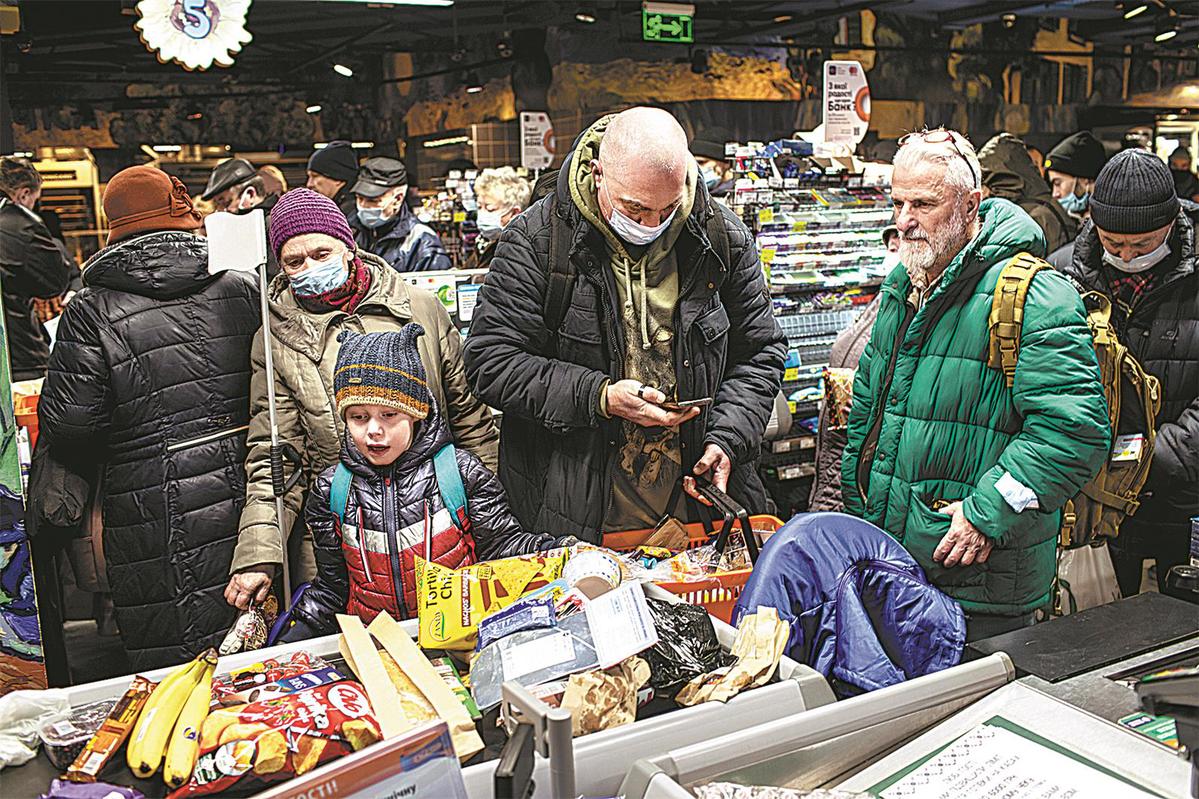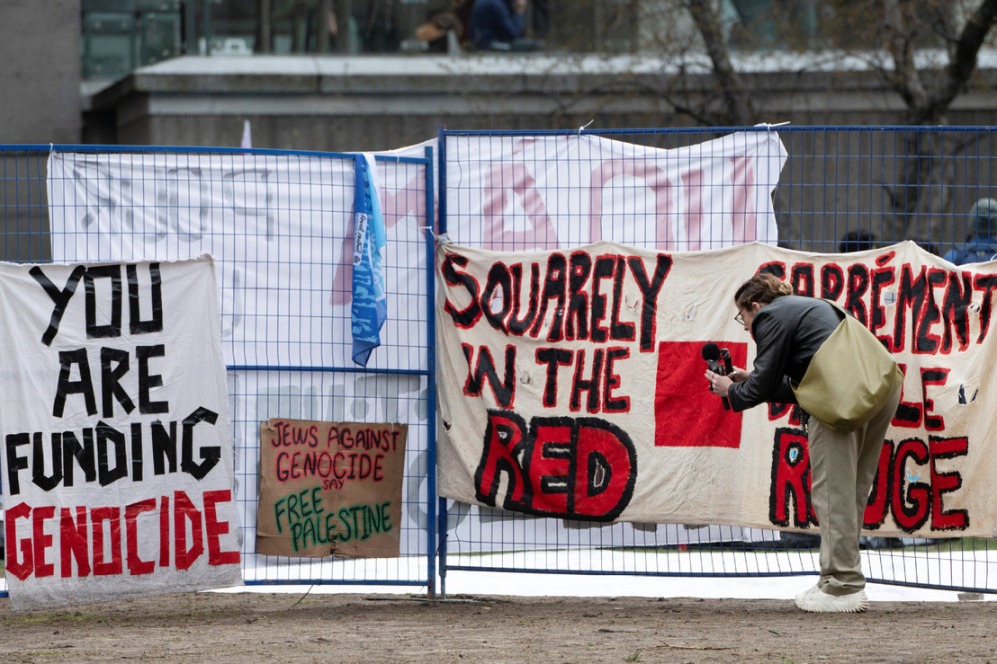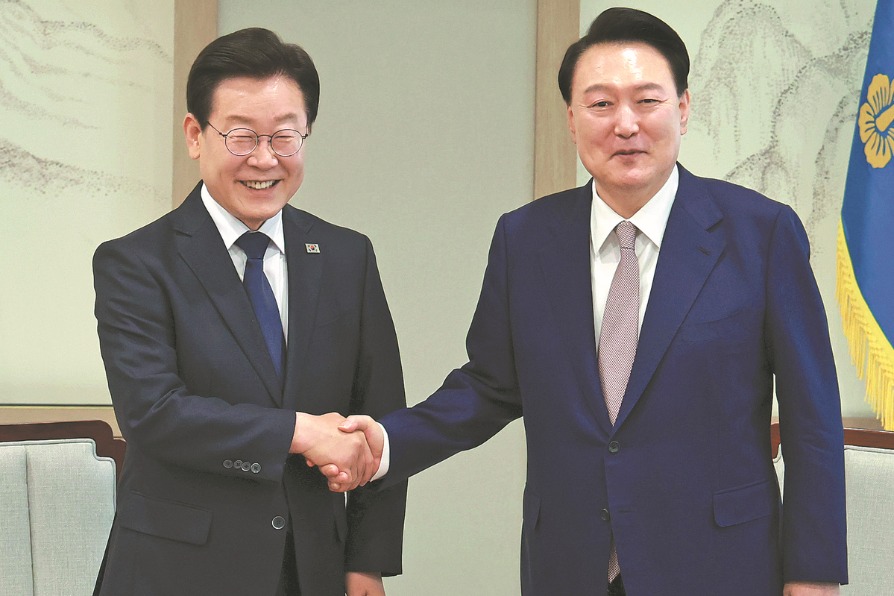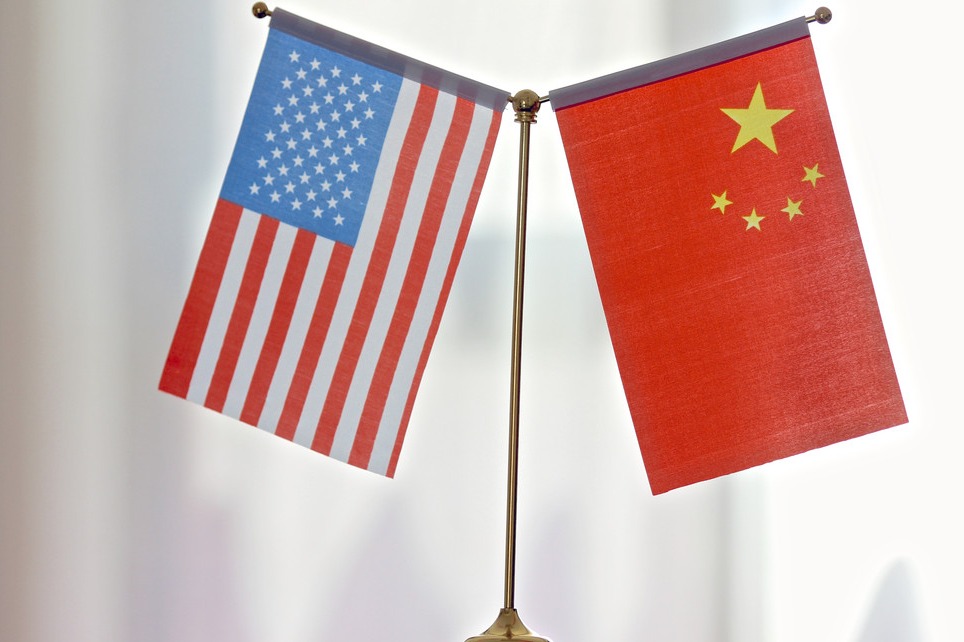Economic pain on way for Europe


Exposure to Ukraine conflict likely to drive prices, dent mood, experts say
Europe's economy may bear the brunt of the spillover effects of the Ukraine crisis in the form of even higher energy prices and reduced business confidence, analysts said.
Tian Dewen, deputy director of the Institute of European Studies at the Chinese Academy of Social Sciences, said that the world is a global village in which countries are economically interdependent, and any crisis that arises can affect the lives of people everywhere.
One immediate impact of the Ukraine crisis is the hit to Europe's economic recovery against the backdrop of the COVID-19 pandemic.
"The impact of a conflict or exchange of fire between Russia and Ukraine is bound to ripple across Europe and beyond, with knock-on effects on the global economy," Tian said. Russia is the world's third-largest oil producer and one of the world's leading exporters of natural gas, while Ukraine is the world's leading food exporter.
Philip Lane, the European Central Bank's chief economist, has told fellow policymakers that the Ukraine conflict may reduce the eurozone's gross domestic product by 0.3 percent to 0.4 percent this year, according to a Reuters report.
Russia accounts for about 40 percent of imports of natural gas to the European Union and about 30 percent of its crude imports, according to Eurostat, the bloc's statistics agency.
The EU and the United States have imposed sanctions on Russia's biggest banks and its elites, and have frozen the assets of the central bank held outside the country. They have also acted to remove some Russian banks from SWIFT, the payment system used for most international financial transactions.
Tian said energy issues will directly affect European countries, given the reliance of many of them on Russian supplies. Ukraine is a key transit hub for Russian oil and gas. Austria, Italy, and Slovakia import natural gas from Russia, mainly transported through Ukraine. Some Russian-supplied natural gas also reaches Germany and Poland via Ukraine.
Energy prices have been soaring over the past year in Europe, and the Ukraine crisis will make the situation worse, Tian said.
"For many countries, alternative energy solutions are hard to come by in the short term," he said.
Tian said that a characteristic of the EU economy is that, for the most part, its raw materials are supplied from outside the bloc, and local capital-intensive and technology-intensive enterprises are concentrated. Additionally, its own markets lack growth momentum, and many of the region's goods need to be sold outside Europe.
"That is why uncertainty in the world economy will have a greater impact on the EU economy," Tian said. "Soaring energy and raw material prices and supply shortages, as well as global supply chains that have not fully recovered from the COVID-19 pandemic, are all negative factors for the recovery of the European economy."
Business confidence
Tian said that investors and capital typically steer clear of exposure to conflicts, and the uncertainty will hurt business confidence and consumption. This would have a big impact on the European economy, the scholar added.
Chen Fengying, a senior researcher on the world economy at the China Institutes of Contemporary International Relations, said that considering the EU's reliance on Russian energy, there are indications that Western countries may not touch the energy sector in their actions against Moscow.
But the Russia-Ukraine conflict will further stoke inflation in Europe. Aside from energy bills, food prices look set to jump, Chen added.
Russia and Ukraine together account for 25 to 30 percent of global wheat exports, and around 80 percent of global shipments of sunflower seeds, according to the London consultancy Capital Economics.
Chen said that many countries are already paying higher prices because of the conflict. Within the EU, Germany is likely to suffer the most. Its economy is growing slower than many other EU countries.
Germany is sticking to a plan to abandon nuclear energy by this year and has been reliant on Russian energy.
But the country announced on Feb 22 that it would suspend the certification of the Nord Stream 2 gas pipeline, which is worth about $11 billion.
Chen said that if the Ukraine conflict eases soon, there are grounds for optimism that its economic effects will gradually diminish.



































